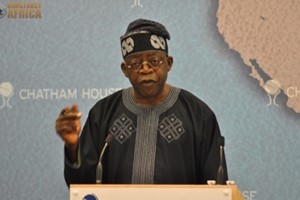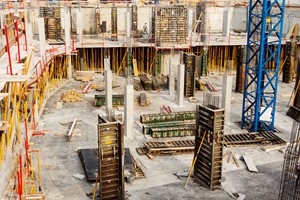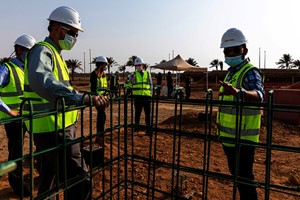Among the key issues are lack of funding, inadequate infrastructure, corruption, and the weak enforcement of laws.
Nigeria’s President-elect, Bola Ahmed Tinubu, must hit the ground running when sworn in as the next President of the country. His election as the incoming President has been challenged by opposition candidates in court. Barring any issues or overturn of the results by the court, Tinubu will preside over a country with a myriad of problems.
The New York Times reported on March 1, 2023, that a recent Afrobarometer survey showed that nearly 90% of Nigerians believe the country is going in the wrong direction.
That is the challenge Tinubu faces. Among the key issues are lack of funding, inadequate infrastructure, corruption, and the weak enforcement of laws.
ConstructAfrica released its Nigeria Construction Market Report 2022 in December 2022. Among the points raised were infrastructure development issues being a significant constraint to Nigeria’s growth, with businesses and investors facing challenges doing business in Africa’s largest economy.
But the report also said the federal government was keen to boost infrastructure development in collaboration with the private sector through Public-Private Partnerships (PPP).
“The overall outlook for the industry is optimistic, especially considering recent reforms like the Petroleum Industry Act 2021, National Infrastructure Funds, and other initiatives to enhance infrastructure in the country,” the report said.
Industry stakeholders
On January 20, 2023, The Guardian Nigeria reported Tinubu sought support from industry stakeholders for his infrastructure development plans at a meeting with the Federation of Construction Industry (FOCI) in Abuja.
High Chief Vincent Barrah, president and chairman of FOCI, said the construction industry is Nigeria's largest employer (of labour) after the government, a sentiment echoed by Olubunmi Adekoje, FOCI’s director general who was quoted on March 16, 2023, as saying, “Development of infrastructure, which is at the heart of every administration’s core objective, is being executed by the construction industry. Financing of projects is a huge challenge due to paucity of funds and the attendant high-interest rates of borrowing from commercial banks.”
The Nigerian Economic Summit Group (NESG) has predicted that the unemployment rate in the country will hit 37% in 2023. It put inflation at 20.5% for the same year. But Wale Edun, who was appointed Commissioner of Finance in 1999 after Tinubu won the governorship of Lagos State, and is tipped to be the next finance minister, told The Africa Report that the Tinubu administration will aim for double-digit economic growth, between 6% as a minimum and at least 10%. “It is what Tinubu believes will take us to a better life for all Nigerians,” he said.
Funding
Tinubu must tackle funding challenges such as limited access to credit facilities and high-interest rates to achieve infrastructure development goals. The outgoing government created the Infrastructure Corp of Nigeria (InfraCorp), a NGN15 trillion fund set up to drive Public‐Private Partnership (PPP) investments in infrastructure.
FOCI is calling on the incoming administration to set up a construction bank to fund infrastructure. Director General Adekoje spells out the federation’s concerns. “Development of infrastructure, which is at the heart of every administration’s core objective, is being executed by the construction industry. Financing of projects is a huge challenge due to paucity of funds and the attendant high-interest rates of borrowing from commercial banks.”
By Yvonne Tagoe











